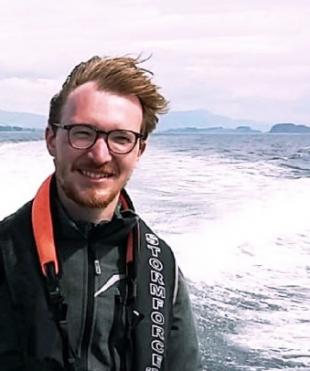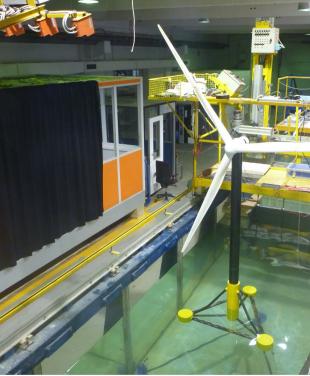Choosing a Sponsor
Being a native French speaker, a project with EDF in Paris was an obvious choice for Elie, especially when they were offering a project oriented towards civil engineering, the subject of his first degree.
DF’s research laboratories at Chatou have a strong culture of engagement with academia and he is working alongside a number of other PhD students. However, he is finding that through IDCORE he has received far more practical engineering training than many of them. Also, the EngD places a lot more value on the practical work Elie is doing for EDF than a normal PhD would.
Why IDCORE
After graduating from UCL with an MEng in Civil Engineering, Elie joined the costal engineering team at Mott McDonald, hoping to pursue interests that he had developed during his undergraduate studies. Working on projects like a tidal barrage started to shape his desire to gain deeper technical knowledge of tidal energy. He found IDCORE while looking for PhD opportunities.
The first year of training at IDCORE helped him to “catch-up” on a broad range of offshore renewables knowledge and led to him re-focussing on floating wind as an area offering greater opportunity.
IDCORE isn’t just about engineering knowledge. Like many of the students, Elie really enjoyed the residential course at the Scottish Association for Marine Science in Oban, and his experience of all the IDCORE training has been enhanced by being part of a mutually supportive cohort.
Elie’s Project
Elie’s project builds on the work of a previous IDCORE student, Daniel Milano, modelling the impact of waves on floating offshore wind turbines constructed using tension leg platforms. He is exploring how to model extreme tensions in the moorings more accurately, analysing the non-linear modelling approaches that have been used previously and validating them with tank testing, creating the capability needed by EDF to undertake further tank testing of floating offshore wind platforms. He is currently working on a paper that he will be presenting at a conference and is hoping that he will also be able to publish a journal paper based on his work.
The pandemic has had an impact on Elie’s progress, restricting access to the labs and making communication with the experimental team difficult. He is concerned about gathering all the data he needs to complete his project, but the work is now progressing well and the team at EDF are very supportive. He has a great industrial supervisor and EDF have unparalleled in-house facilities.
They also have an excellent relationship with IDCORE. Elie can see that EDF value the contribution of past IDCORE students, access to the software and facilities in the partner universities, and the practical approach to problem solving offered by the British Universities.








